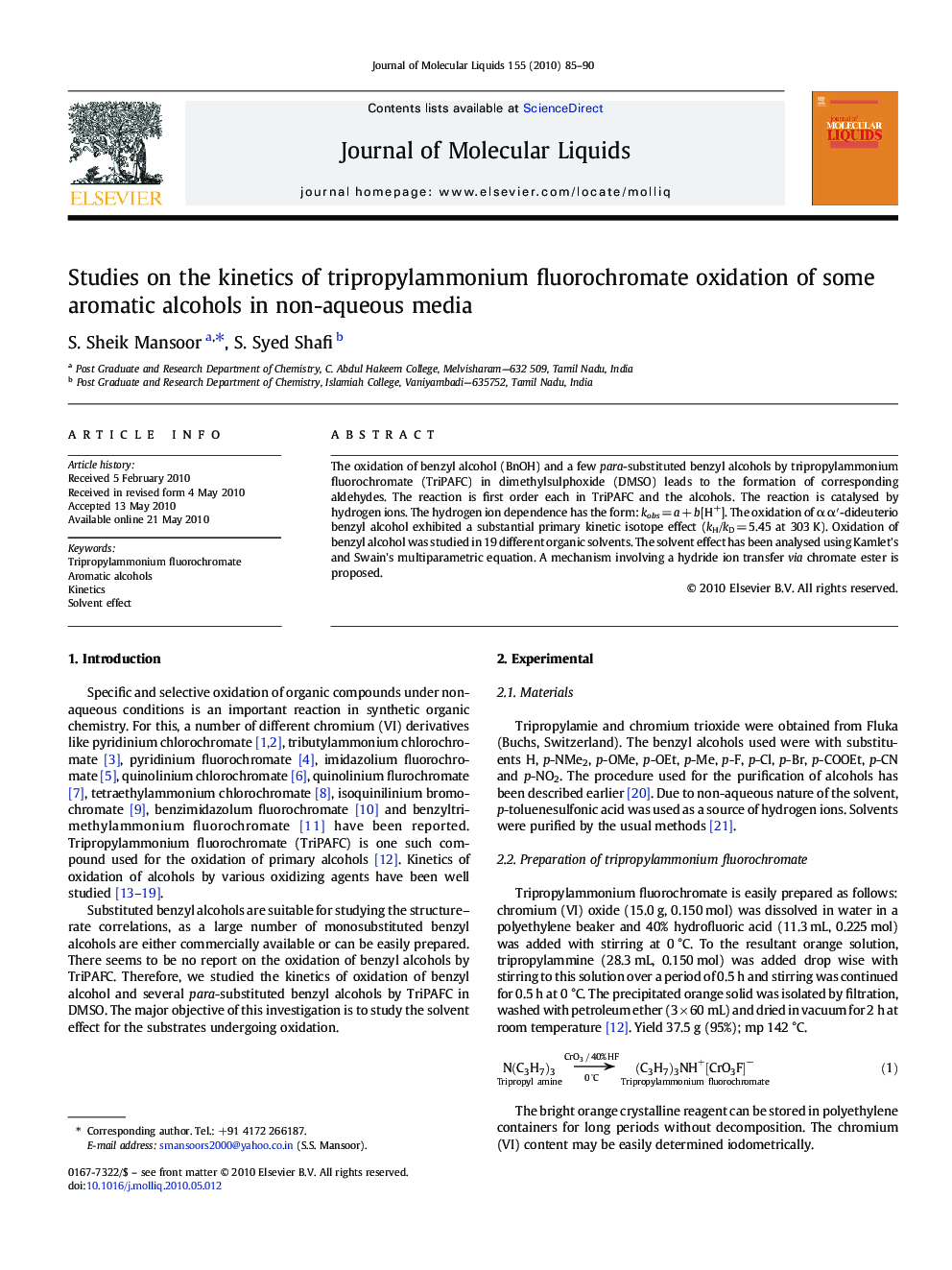| Article ID | Journal | Published Year | Pages | File Type |
|---|---|---|---|---|
| 5412981 | Journal of Molecular Liquids | 2010 | 6 Pages |
Abstract
The oxidation of benzyl alcohol (BnOH) and a few para-substituted benzyl alcohols by tripropylammonium fluorochromate (TriPAFC) in dimethylsulphoxide (DMSO) leads to the formation of corresponding aldehydes. The reaction is first order each in TriPAFC and the alcohols. The reaction is catalysed by hydrogen ions. The hydrogen ion dependence has the form: kobs = a + b[H+]. The oxidation of α αâ²-dideuterio benzyl alcohol exhibited a substantial primary kinetic isotope effect (kH/kD = 5.45 at 303 K). Oxidation of benzyl alcohol was studied in 19 different organic solvents. The solvent effect has been analysed using Kamlet's and Swain's multiparametric equation. A mechanism involving a hydride ion transfer via chromate ester is proposed.
Related Topics
Physical Sciences and Engineering
Chemistry
Physical and Theoretical Chemistry
Authors
S. Sheik Mansoor, S. Syed Shafi,
